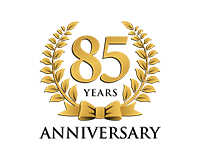Diploma on
Management & Administration
This Program is specially designed to produce competent, trained, professional, effective modern managers.
A good manager is a person set apart by his or her training, professionalism, technical and human/people skills, and with the abilities to guide the efforts of others: to plan, organise, direct, motivate, co-ordinate and control their activities so that the desired objectives of the department or enterprise are achieved in the most efficient and economical manner. This popular Program provides guidance and training on how to manage people, departments and organisations, as well as to administer teams and provide positive leadership. The Program covers a wide range of important topics which must be mastered for success in management and administration, and which provide a foundation for specialisation in specific management fields.
ALSO:
(1) Anybody enrolling for this Programme before 31st December 2024 will also be enrolled FREE for a Course on Strategy, Quality & Contemporary Business Concerns; the only requirement is that you provide your personal email address to the College on enrolment.
(2) During the “Covid-19” (Corona) virus pandemic and in lock-down periods, affected Members may be allowed to take Assignments (home-based course work) instead of or in addition to sitting Examinations to complete the Programme; details can be provided on request after enrolment onto the Programme.
- Summary of major topics
- What is included
- Related courses
- Study & Career development
Major Topics Covered in this Diploma Program include:
Module 1 - The Meaning of Management
-
What modern management involves, the art of management, leadership
-
Teamwork: skills, training, organisation, ‘technical’ and ‘human’ aspects of a manager’s job
-
Management in business and commerce, types of enterprises, products and services
-
Business units, sole-proprietors, partnerships, companies, limited liability, board of directors
Module 2 - The Functions of Management
- The objectives of an enterprise, policy formulation, implementing policy, the profit motive
- Strategic, tactical and operational planning, decision-making, organising and co-ordinating
- Motivation, teamwork and communication, controlling, supervising, records of performance
- Quality, quantity, ideal and attainable standards, setting and recording standards
Module 3 - The Responsibilities of Management
- The meanings of responsibility and authority, obligations and behaviour, seniority, accountability
- Responsibilities for customer-satisfaction, security, confidentiality, management/employee relations
- Responsibilities to subordinates: treatment, working conditions, workloads, safety, training, development
- Responsibilities towards the community, differing ideologies, striking the right balance
Module 4 - The Delegation of Responsibility
- The meaning of delegation, delegating the right way, actions and checks, mistakes to avoid, benefits
- Business organisation, expansion, departments and divisions, spans of control
- Planning organisational structure, size, core activities, specialisations, the workforce, locations
- Types of organisational structures, organisation charts and their purposes and uses
Module 5 - Communication in Management
- The importance of good communication, internal and external, vertical and horizontal, two-way flow
- Principles of effective communication, senders and receivers, channels, understanding, feedback
- Oral communication, advantages, dangers, emphasis, adaptability, unspoken communications
- Written communications, business letters, reports, forms, telephone, electronic communications
Module 6 - Planning and Forecasting
- Forecasting as the basis for planning, research, factors like demand, population, competition, pricing
- Budgets, the purpose and importance of budgeting, preparing budgets, limiting factors
- Sales, production and cash budgets, the master budget, budgetary control and review, variances
- Manpower planning, current levels, future needs, organisation and method studies, work studies
Module 7 - The Management of Personnel (1) - Recruitment and Appointment
- The “human resource”, HR/Personnel management, internal recruitment, external recruitment
- Job analysis, job design, job descriptions and employee specifications, their purposes and uses
- Attracting applicants, advertisement, employment application forms, design, the C.V., references
- Selection, sorting applications, interviews, terms and conditions of employment, probationary periods
Module 8 - The Management of Personnel (2) - Induction, Development, the HR Department
- Induction, purpose and objective, the work environment, the workgroup, follow-ups, good relations
- Training and development, advantages of training personnel, different types of training
- Remuneration policy, considerations, systems of remuneration, HR policy, fairness, equality
- The HR/personnel department, responsibilities, sections, personnel records, labour turnover, statistics
Module 9 - Industrial Relations
- Trade unions, aims and activities, union roles, shop stewards, staff associations, white collar unions
- Industrial action, why taken, forms it may take, collective bargaining, joint consultation, negotiation
- Skills and attitudes needed by managers involved, arbitration. mediation, tribunals, advisory services
- Dismissal of employees, reasons, procedures, redundancy, government participation and intervention
Module 10 - The Manager and His or Her Subordinates
- Differences between a manager and subordinates, the right approach to subordinates
- Qualities and attitudes needed, building respect and loyalty, approachability, consistency of actions
- Disciplinary action, the correct approach and procedures, employee counselling, solving problems
- Resignations, exit interview, retirement, pensions, equal opportunities policy and its implementation
Module 11 - Styles of Leadership and Management
- Workgroups and team building, factors affecting behaviour, size, environment, roles, group norms
- Leadership, styles, task-oriented and relationships-oriented managers, scientific management
- Theories, principles, theorists: Mayo, Maslow, Herzberg, McGregor, developing an effective style
- Job design and redesign, job rotation, job enlargement, job enrichment, extrinsic and intrinsic rewards
Module 12 - The Successful Manager and Managerial Development
- Personal qualities needed for success, desirable mental attitudes, leadership, empathy
- Learning organizations, what it means, involvement of personnel, positive attitude towards change
- Preparing for promotion in management, willingness to learn, getting on with others, abilities
- Finding managerial posts, letters, application forms, attending interviews, preparation, behaviour
WHAT IS INCLUDED IN THE MODEST CIC FEE
Your CIC Fee includes:-
- Your enrolment/registration with Cambridge International College, and your own high-quality, professionally produced and illustrated comprehensive International CIC Study & Training Publications.
- A detailed, professional ‘Study & Training Guide’ with full instructions on how to study to achieve success and gain top results. The Guide includes detailed advice on how to answer Self-Assessment Tests, Training Tests and Examinations.
- Self-Assessment Tests and Recommended Answers for them, and a Progress Chart.
- Two Progress/Training Tests (which can be used as ‘Past Papers/Questions’) with an optional Tutorial Support Service.
- The Final Examination** sat under Invigilation/Supervision in your own area - full details, guidance and explanation of how your Examination will be arranged and how Invigilation is conducted will be provided when you register. Note, CIC arranges Examinations in over a hundred countries worldwide for thousands of Members every year; it is a flexible, straightforward process and will be arranged when YOU are ready to write your Examination. **An Assignment Option is available instead of an Exam for the ‘Covid-19’ (Corona) virus period.
- The prestigious Cambridge International College Diploma on successful completion of your Study & Training and on passing the Final Examination.
- Your personal page on CIC’s Member Services website with access to results, despatch details, advice and guidance, and more: www.cambridgeinternationalcollege.co.uk
- Regular information and news including: Newsletters with details of special offers and new Programs and much more; and Competition Forms; by email and post.
Everything needed for your Study & Training success is included in the CIC Fee.
Additionally:
- Further Study and Training Advice, and Assistance is available before, during and after CIC Study & Training; Members may ask CIC’s team of experienced Consultants for advice on further study and Programmes to improve career prospects and advancement.
- CIC’s experienced and helpful staff can assist with numerous special requests, such as reference/recommendation letters and transcripts, and more, by post and email.
- Business Administration Honours (Higher) Diploma 21 months (flexible)
- Health & Safety in the Workplace Diploma 12 months (flexible)
- Office Management & Administration Diploma 12 months (flexible)
- Leadership & Team Management Diploma 12 months (flexible)
- Management & Leadership Mastery of Management Graduate Diploma One year (flexible)
For those who desire or require it, this Program provides an essential and solid foundation for higher study in all fields of management, administration and business, relevant to all types and sizes of organisation. Whether in general management or specialised areas (such as Sales & Marketing, Logistics, Finance, Accounting, Production, Public service, or service provision) - in fact, almost any field - this is a vital Program to study.
This Program will provide the potential for employment, advancement and career development in any career area which requires managerial or administrative knowledge, skills and ability. The Program also provides a managerial framework and the confidence needed to success in management.
There is a wide range of options for further study - see the "Related Courses" section for suggestions - which include Honours Diplomas, ABA & Baccalaureate Programmes, and the 'Double Award' EBA & BBA Bachelor degree Programme. You are welcome to ask the College for advice, and of course you can see details of these Programmes on this website.

Sign up to this course
Payment Options:
Duration & Assessments
The Study Period is one year (12 months) but this is flexible; the Diploma can be completed in a shorter period, or you can take longer if necessary.
READ MORE »To gain your Diploma you need to sit and pass an Examination** (based entirely upon the contents of the Study Materials provided to you in your Program Fee). Full and clear details about preparing for and sitting the Exam are provided to you, including in your Study & Training Guide, when you enrol. The clear information explains when, where and how your Examination will be arranged - it is a simple and straightforward process, which hundreds of thousands of other Members have successfully gone through. If you study well and follow the advice in the CIC Study & Training Guide you should be able to achieve high marks and good grades - and obtain your prestigious International Diploma!
**An Assignment Option is available instead of an Exam for the ‘Covid-19’ (Corona) virus period.
(See the College Prospectus, or the “Frequently Asked Questions” section on the “Contact Us” page of this website, if you would like more information.)
Result
An international accredited qualification for professional development and career success showing you have substantial skills, competence and knowledge.

